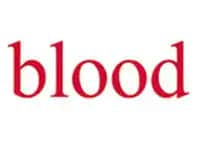Conference MDAngle offers personal perspectives from conference attendees, showcasing their anticipation, quick takeaways, and insights into how the presented research will affect their patients.
The 2024 American Society of Hematology (ASH) Annual Meeting and Exposition was held in San Diego on December 7-10. Several sessions focused on paroxysmal nocturnal hemoglobinuria (PNH), highlighting emerging treatment options such as oral monotherapy, and new research on managing the condition. Key sessions featured updates on therapies targeting different points in the complement cascade.

Ilene Weitz, MD
Professor of Clinical Medicine, Jane Anne Nohl Division of Hematology and Center for the Study of Blood Diseases, Keck-USC of School of Medicine of USC; Norris Comprehensive Cancer Center, Los Angeles, California
"I think the most important takeaways from ASH are the proliferation of new drugs, including oral inhibitors and also IV inhibitors."
Preconference Considerations
ASH 2024: New Data in Paroxysmal Nocturnal Hemoglobinuria
Dr Weitz anticipates key insights at ASH 2024 on PNH treatment advances, including the phase 3 ALPHA trial, which shows that danicopan enhances hemoglobin stability, reduces fatigue, and improves quality of life in patients taking ravulizumab or eculizumab. Additionally, APPLY-PNH trial data on iptacopan monotherapy reveal improved physical function and symptom relief, offering valuable developments for PNH care.
Quick Clinical Takeaways
ASH 2024: Highlights in Paroxysmal Nocturnal Hemoglobinuria
Dr Weitz highlights key advances in PNH treatments from ASH 2024, including improved quality of life and symptom relief with iptacopan in the APPLY-PNH and APPOINT-PNH trials. Positive results from the ALPHA trial showed benefits of adding danicopan to ravulizumab or eculizumab, and early data on OMS906 demonstrated promise for addressing persistent anemia. Additionally, a French study linked higher proportions of type 2 neutrophils to increased thrombosis risk, regardless of clone size.
How Will My Patients Benefit?
ASH 2024: Clinical Impact of Promising Treatments for PNH
Dr Weitz discusses the studies on iptacopan, pegcetacoplan, and danicopan presented at ASH 2024, highlighting their effectiveness in treating PNH. Iptacopan demonstrated significant improvements in quality of life, including better global health status and symptom relief, whereas danicopan, as an add-on to C5 inhibitors, reduced breakthrough events. Pegcetacoplan, effective in blocking hemolysis, works well for patients comfortable with home infusion. The choice of therapy ultimately depends on patient preferences, compliance, and the risk for breakthrough hemolysis or hyperlipidemia.
Polling Question
Summary
The 2024 ASH Annual Meeting and Exposition highlighted significant advancements in paroxysmal nocturnal hemoglobinuria (PNH) treatments, focusing on emerging therapies and personalized care strategies. Key findings included improved quality of life and symptom relief with iptacopan monotherapy in the APPLY-PNH and APPOINT-PNH trials, as well as reduced breakthrough events with danicopan as an add-on to C5 inhibitors in the ALPHA trial. Early data on OMS906 showed promise for addressing persistent anemia, whereas studies on pegcetacoplan demonstrated effectiveness for patients comfortable with home infusion. In a series of three videos, Dr Ilene Weitz emphasized the importance of these findings in advancing PNH care and tailoring treatments to individual patient needs and preferences.
Resources
Medscape © 2025 WebMD, LLC
Any views expressed above are the author's own and do not necessarily reflect the views of WebMD or Medscape.
Cite this: Conference MDAngle: ASH 2024 Paroxysmal Nocturnal Hemoglobinuria - Medscape - Jan 02, 2025.








Comments